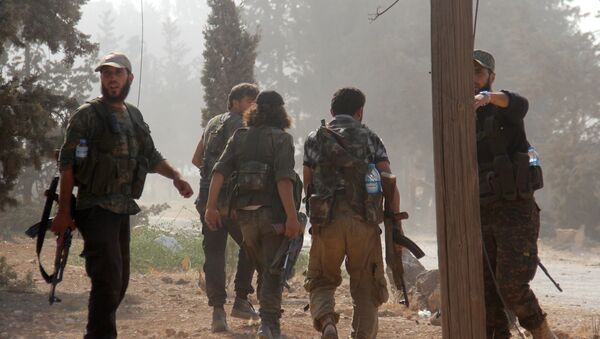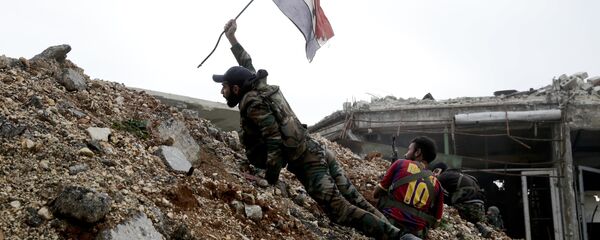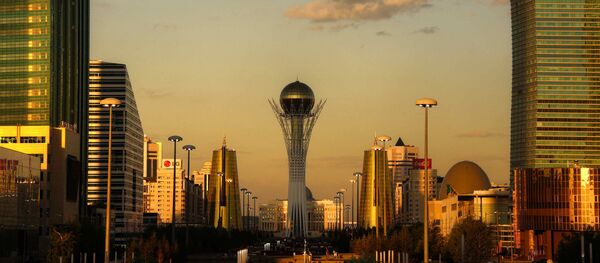On Friday, a total of 27 opposition groups and the so-called interim government of Syria signed a final document on participation in a major conference between opposition and government delegations in Kazakhstan's capital Astana on January 23.
The document contained a number of conditions laid down by the opposition including an introduction of a 10-day truce in southern Syria and Damascus since Friday.
The agreement was inked by Ajnad al-Sham, Free Idlib Army, Northern Division, and even by Jaysh al-Islam and Fastaqim, previously spotted cooperating with al-Nusra Front. For their part, Ahrar al-Sham, Bayan Movement and Faylaq al-Sham refused to sign the document.
However, according to al-Khalil, there is more to the agreement than meets the eye.
"One should take a look at territories mentioned by the opposition's negotiators. These are the areas with high concentrations of al-Nusra Front terrorists," al-Khalil suggested in his interview with RIA Novosti.
Therefore, it is possible that the conditions set by the opposition were primarily aimed at supporting al-Nusra Front and undermining the political process in Syria, the Sadad mayor assumed.
The politician noted that armed opposition groups demanded that the government's military forces halt combat operations in Barada Valley where the only pipeline providing drinking water to Damascus residents is located.
In late December, al-Nusra Front took control over the valley, blew up a water pipeline in the Wadi Barada area and seized the Ain al-Fija water pumping station. Furthermore, the terrorist group still controls the eastern suburbs of Damascus, al-Khalil pointed out.
The Sadad mayor underscored that regardless of the opposition's maneuvers the Syrian government has repeatedly signaled its willingness to push forward a political settlement.
"However, the other side [the opposition] began to stir up trouble and tried to disrupt the process, starting with the murder of the Russian ambassador in Turkey and ending with the disruption of water supply to Damascus," al-Khalil insisted.
Needless to say, this state of events has made it more difficult for Damascus to reach a compromise with numerous opposition factions on the ground.
To add to the uncertainty, the Syrian government's negotiator Ahmad Ghadban was killed on Saturday by militants in Barada Valley, a source in security agency told Sputnik.
According to the source, Ghadban was allegedly shot from a sniper rifle when he was moving from the Ain al-Fija water pumping station with a maintenance crew. It was earlier reported Friday that the Damascus province governor reached an agreement with jihadists to grant access to engineers to the Ain al-Fija facilities to repair the damaged pipeline.
Meanwhile, however, the Syrian government and opposition groups from four cities located in the Damascus province agreed to fight Daesh together paving the way to a future political settlement.
"Under the facilitation of the Russian Center for reconciliation of opposing sides, the Syrian authorities have reached agreement with opposition groups, which had joined the ceasefire regime in the Nasiriya and Ruheiba as well as in Jeirud and al-Otnee, on participation in the warfare against Daesh terrorists," the Russian Defense Ministry said in a daily bulletin on its website.
The Astana peace conference is expected to start on January 23; they are due to be followed by a new round of negotiations on Syrian peace in Geneva on February 8.
Never miss a story again — sign up to our Telegram channel and we'll keep you up to speed!




